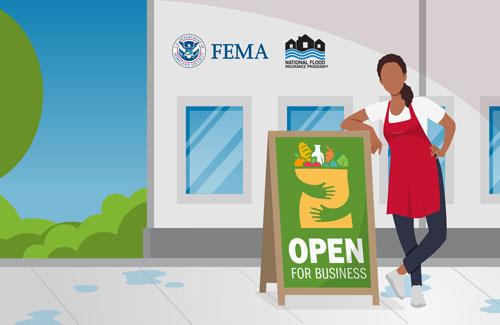Flood insurance is an intricate and highly detailed world. With so many nuances it's no wonder your clients have so many questions—especially after a flood! You are the translator that helps them understand their policy coverage and how to file a claim after a flood.
They look to you in their time of need, especially in the immediate aftermath of disaster, but your job starts before that. Your job starts the moment you talk with your clients about their flood risk and the different types of coverage available to them.
Whatever type of insurance your clients have, it's critical they understand that typical business insurance, homeowners and renters insurance don't cover flood damage. Flood insurance helps them rebuild faster, so they can get back to doing what they love. With that in mind, here are a couple of the more nuanced coverage questions and answers your clients may have.
What is ACV?
ACV is an abbreviation for “actual cash value.” ACV is what it costs to replace that part of the insured building at the time of the loss, having considered any degradation in quality resulting from age or prior damage.
What is RCV?
RCV is an abbreviation for “replacement cash value.” In short, RCV is what it would cost to replace that part of the building that is damaged in a flood.
Does flood insurance cover ACV or RCV?
Flood insurance covers both and pays out claims at the lesser value. Unlike other forms of insurance, flood insurance is not a valued policy. This means that while your client may be insured for $250,000 their payout may be less than that.
Help flood insurance policyholders understand their coverage
As an insurance agent, it's vital that you clarify these points with your clients. Emphasizing the importance of understanding their policy's coverage limits is setting your clients up for success by establishing realistic expectations.
Experiencing a flood can be emotionally, mentally and financially draining for your clients. Be the lighthouse they need in the storm by having answers to even their most difficult questions.
You can find more answers, tools, resources and talking points in the NFIP's Resource Library. And stay up to date as changes come through by signing up for email updates about the latest flood insurance news.

